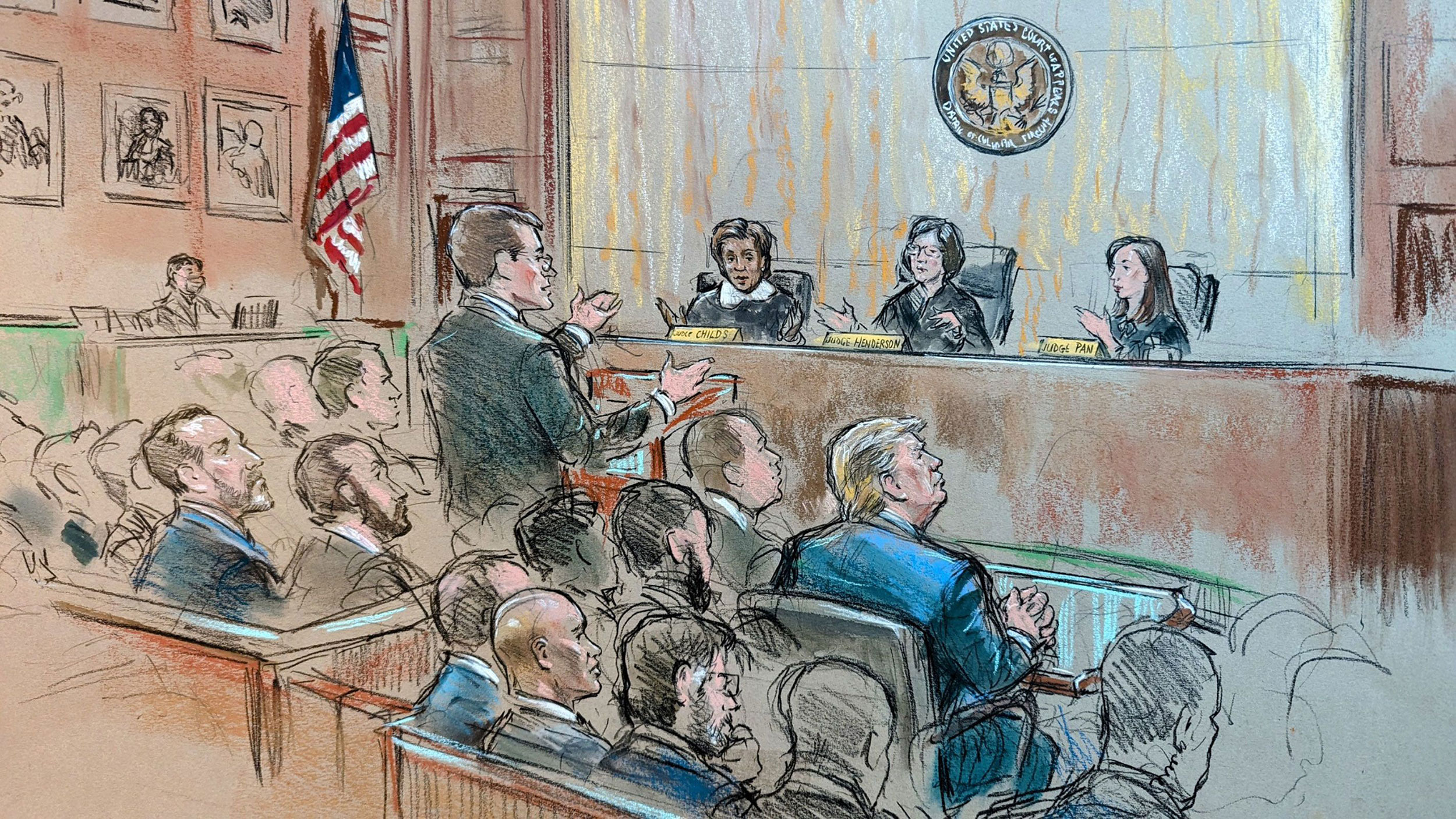Trump Claims Judicial Immunity For Tariff Decisions

Table of Contents
The Basis of Trump's Claim
Trump's assertion of judicial immunity for his tariff decisions rests on arguments centered around executive privilege and the inherent powers of the presidency in matters of foreign policy and trade. His legal team might argue that tariff decisions fall squarely within the president's constitutional authority to conduct foreign affairs and that such decisions are not subject to judicial review. This argument hinges on the concept of executive privilege, which protects certain communications and decisions of the executive branch from disclosure or judicial scrutiny. However, the scope of executive privilege is not absolute and has been repeatedly tested in the Supreme Court. The limitations of executive privilege in the face of judicial review, particularly when impacting individual rights or violating established statutes, would be a crucial point of contention.
- Specific examples of Trump's tariff decisions: The imposition of tariffs on steel and aluminum imports, tariffs on goods from China, and the renegotiation of NAFTA (now USMCA) all represent potential areas where such a claim of immunity could have been invoked.
- Legal precedents cited (or potentially cited) by Trump's legal team: Precedents related to executive power in foreign affairs, such as United States v. Nixon (though not directly applicable in the same way) and cases dealing with the scope of executive privilege, would likely be central to the arguments.
- Analysis of the strength and weakness of the legal arguments: The strength of the argument depends heavily on the court's interpretation of executive privilege within the context of trade policy and the potential harm caused by the tariffs. The weakness lies in the potential for judicial review when individual rights or existing laws are violated.
Legal Experts' Reactions and Analysis
The legal community offered a diverse range of opinions on the validity of Trump's claim. Many legal scholars and experts vehemently opposed the assertion, arguing that it represents a dangerous expansion of executive power and a threat to the rule of law. They emphasized the importance of judicial review to ensure that presidential actions comply with the Constitution and existing legislation. Conversely, some argued that, within certain limitations, the president does possess considerable discretion in matters of trade policy, and judicial interference could hamper effective governance.
- Quotations from prominent legal experts: Gathering quotes from leading constitutional law professors and experts on trade law would provide valuable insight into the differing perspectives.
- Summary of different legal opinions and their rationale: A balanced overview of supporting and opposing arguments is essential for a comprehensive understanding of the debate.
- Links to relevant articles and publications: Providing links to authoritative sources, such as law review articles and analysis from reputable news organizations, enhances credibility and offers readers further avenues for research.
The Political Ramifications of the Claim
Trump's assertion of judicial immunity carries significant political implications, extending far beyond the immediate legal battle. The claim raises crucial questions about the appropriate balance of power between the executive and judicial branches. A successful claim could significantly expand executive power in trade policy and other areas, potentially affecting future trade negotiations and the ability of the courts to check presidential actions. Furthermore, the political discourse surrounding the claim intensified existing partisan divides, with Republicans largely supporting the president and Democrats strongly opposing the expansion of executive power.
- Potential impact on future trade negotiations: A precedent of executive immunity could embolden future presidents to act unilaterally in trade matters, potentially damaging international relations and undermining multilateral trade agreements.
- Potential implications for the balance of power between the executive and judicial branches: The claim poses a direct challenge to the checks and balances inherent in the US system of government.
- Political strategies and motivations behind the claim: Analyzing the political motivations behind the claim, such as potentially attempting to avoid legal challenges to unpopular trade policies, offers valuable context.
Historical Precedents and Comparisons
While Trump's claim might appear unprecedented, it echoes past attempts by presidents to assert broader executive powers in foreign policy and trade. Examining these historical instances, including their outcomes, provides valuable context for understanding the current situation. Analyzing similar legal battles involving executive power and trade policy helps to gauge the potential success or failure of Trump's claim. By examining historical precedents, we gain a deeper understanding of the long-standing tension between executive power and judicial review in the realm of trade policy.
- Examples of previous presidential actions regarding trade and immunity claims: Research into past administrations and their actions related to trade policy and assertions of executive privilege is crucial.
- Outcomes of past legal challenges: Examining the success or failure of past attempts to assert similar claims of immunity provides valuable insight into the potential trajectory of Trump's claim.
- Historical context for understanding the current situation: Understanding the evolution of legal interpretations related to executive power and trade policy over time offers critical background for comprehending the current debate.
Trump's Tariff Immunity Claim: Implications and Next Steps
Trump's claim of judicial immunity for his tariff decisions remains a highly contentious issue with far-reaching implications for the future of trade policy and the balance of power within the US government. While the legal arguments supporting the claim are complex and subject to interpretation, the potential consequences for the separation of powers are undeniable. The likelihood of success hinges largely on the court's interpretation of executive privilege and the weight given to concerns regarding potential harm to individual rights and established legal processes.
To better understand the complexities surrounding judicial immunity in the context of Trump's trade policies and other tariff disputes, further research is essential. Engage with ongoing legal analyses, explore opinions from legal experts, and follow developments in related news sources to stay informed about the evolving debate surrounding presidential authority and the scope of judicial review. Understanding the nuances of judicial immunity, and its impact on Trump's tariff decisions, is crucial for comprehending the future direction of US trade policy.

Featured Posts
-
 Lotto 6aus49 Ziehung Vom Mittwoch 9 4 2025 Ergebnis
May 02, 2025
Lotto 6aus49 Ziehung Vom Mittwoch 9 4 2025 Ergebnis
May 02, 2025 -
 Warri Itakpe Rail Line Shut Down Engine Failure Causes Suspension
May 02, 2025
Warri Itakpe Rail Line Shut Down Engine Failure Causes Suspension
May 02, 2025 -
 Tesla Board Denies Plans To Replace Elon Musk
May 02, 2025
Tesla Board Denies Plans To Replace Elon Musk
May 02, 2025 -
 Obituary Priscilla Pointer Actress 1923 2023
May 02, 2025
Obituary Priscilla Pointer Actress 1923 2023
May 02, 2025 -
 Cay Fests Splice A Film Analysis
May 02, 2025
Cay Fests Splice A Film Analysis
May 02, 2025
